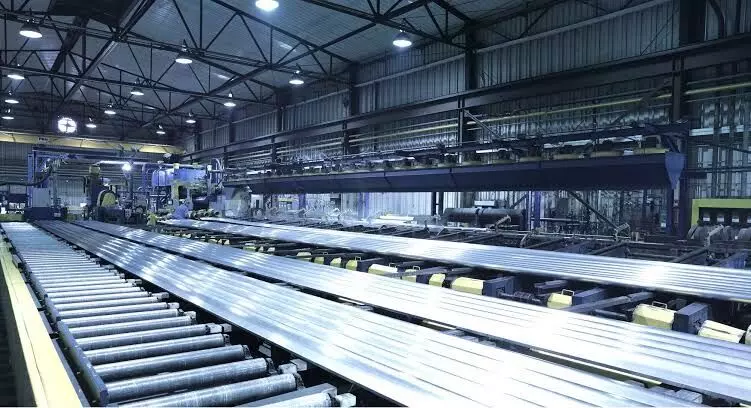How Trump’s tariff will impact Indian aluminium exports
A high tariff may result in Indian businessmen shifting operations to the UAE and Australia, while domestic businesses take a hit too
By Sri Lakshmi Muttevi
How Trump’s tariff will impact Indian aluminium exports
Hyderabad: United States President Donald Trump on July 6 announced a brutal 50 per cent tariff on Indian exports to the USA.
This marked the highest against any Asian country in the world.
The announcement comes after India’s decision to continue oil purchases from Russia, which has upset Trump. However, this steep hike in tariff or ‘arm-twisting’ has come as a rude shock to major industries like food, metal, textiles and luxury Indian brands. A high tariff may result in Indian businessmen shifting operations to the UAE and Australia, while domestic businesses take a hit too.
How US tariffs would affect Telangana and Andhra Pradesh
Back home, in India, the southern part of the country contributes to high export trade to the United States.
Telangana and Andhra Pradesh are home to a growing number of aluminium extrusion facilities, catering to segments like construction, electric vehicles, renewable energy, transportation, electronics and consumer durables.
Projects under the Smart Cities Mission, affordable housing schemes, investments in electric mobility and solar power, and preference for lightweight materials across various sectors are major accelerators for growth.
As per the latest data, the per capita consumption of aluminium extrusion products in India is just 3 kg, while in China it is 25 to 28 kg, and 18 kg in the USA.
Speaking in Hyderabad, Jitendra Chopra, president of All India Aluminium Extrusion Industry, said India’s aluminium extrusion market touched $3.51 billion in 2024 and is projected to reach $4.61 billion by 2030, growing at a CAGR of 4.5 per cent.
‘Important to boost domestic consumption to counter tariff burden’
While North India remains the dominant market, the southern region is now recognised as a major growth corridor, with strong industrial clusters and rapid infrastructure development, he said.
“However, the sector continues to face several challenges, including volatility in raw material prices, high energy costs, stringent environmental regulations and competition from global markets. Shortages of skilled labour and the need for advanced extrusion technologies are also pressing concerns. To counter trade challenges like the Trump Tariff, the industry must boost domestic consumption, reduce dependency on imports and expand export capacity,” said Agarwal.
Speaking to NewsMeter, industrialist Anil Agarwal added, “India is being penalised for being friends with Russia. The 50 per cent tariff is nothing but arm-twisting. The USA also had an issue with China; however, it only slapped the highest tariff against India. Industries affected by this increase are worried about how customers would behave. Now the focus will be shifted to the UAE, Australia and Europe. My export turnover is around Rs 300 crore annually, and this has largely affected us.”